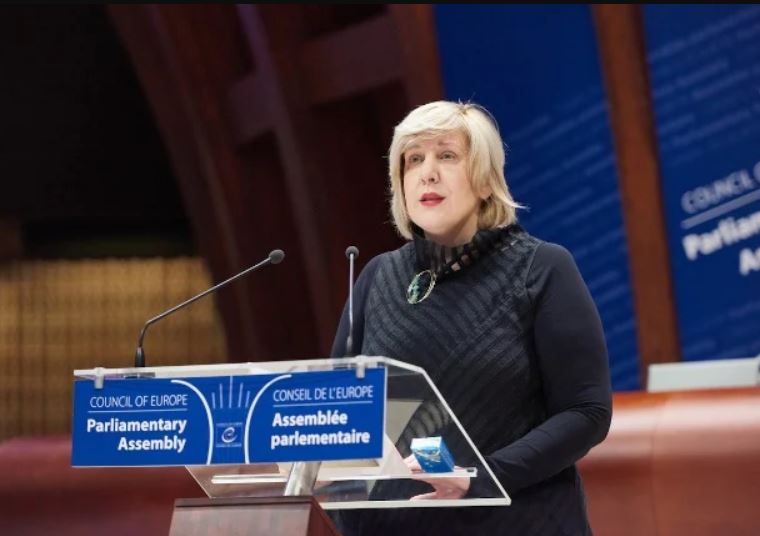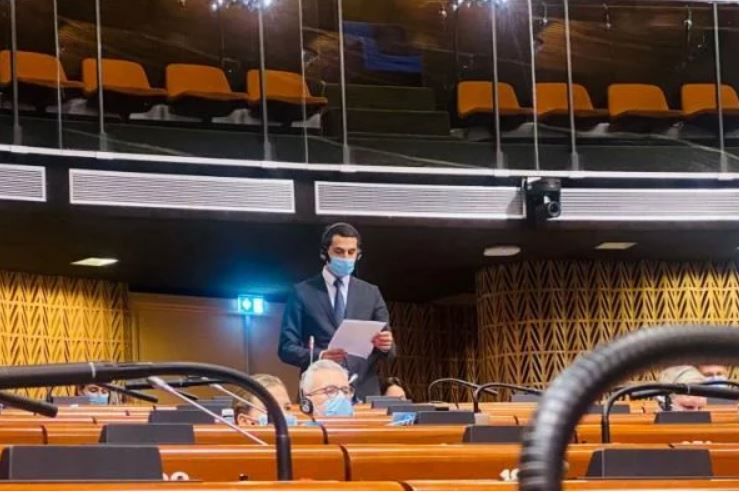“Your annual report contains a reference to your memorandum on the humanitarian consequences of the war in Nagorno-Karabakh. Among other issues in the document, you express concern about the Armenian prisoners of war in Azerbaijan, stating that they should all be released immediately, as they are being treated inhumanely. What can you say about this? What steps are being taken?” The head of the Armenian delegation to the PACE Ruben Rubinyan addressed this question to the PACE Commissioner for Human Rights Dunja Mijatovic at the plenary session of the PACE spring session. Presenting her report and referring to the trends in the protection of human rights in Europe, Dunja Mijatovic said, “These tendencies are not new. Particularly alarming is the scale of the backlash against the many principles of human rights, the widespread violations of the rule of law, while the rule of law is a precondition for the protection of human rights.”
Answering Ruben Rubinyan’s question, Dunja Mijatovic said that her first wish was to go to Nagorno-Karabakh and continued, “I wanted to go there after the signing of the tripartite agreement. I was waiting to see what happens to the office of the UN High Commissioner for Refugees, which is the only organization that is allowed to enter Nagorno-Karabakh under this agreement. But I know that they have not been able to visit NK yet. I decided to make my proposal in connection with transitional justice, which the Council of Europe deals with- missing persons and other issues related to this conflict. My next steps are to work with both governments. I have made several statements regarding reconciliation, justice and dignity.
But this can be achieved only if there is respect and understanding that there is a need to move forward. I am ready to cooperate with the authorities of both sides. But, unfortunately, I can say that there are no signs of an opportunity for international organizations to visit Nagorno-Karabakh to do their job in the protection of human rights. Despite this circumstance, we will continue to discuss these issues with the authorities of the two countries and civil societies.”
Read also
Tatev HARUTYUNYAN



























































